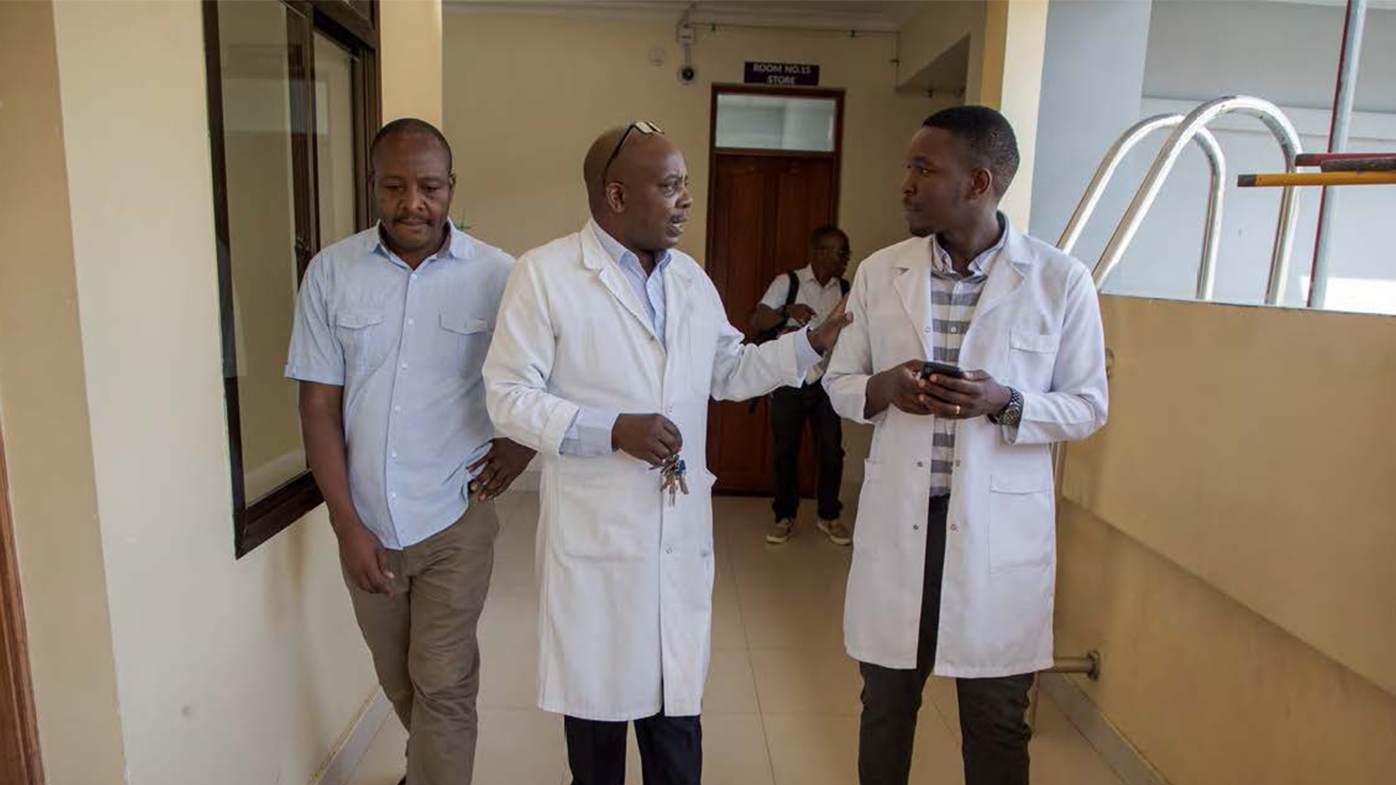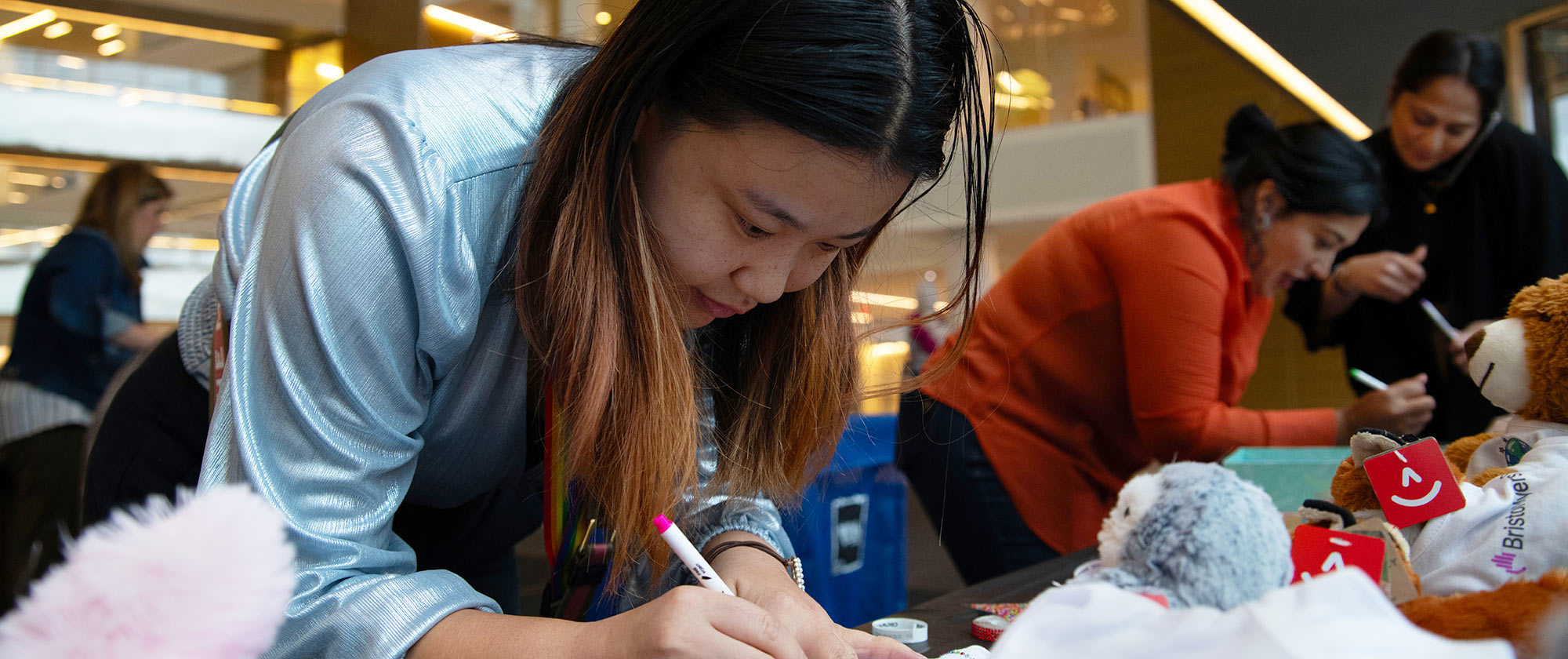
Alejandro with his mother, Graciela, and his father, Victor, on graduation day at the University of California-Davis, where Alejandro earned his bachelor's degree in pharmaceutical chemistry.
Foundation President John Damonti said he was impressed by Nava’s decision to become a doctor of pharmacy to focus on public health versus serving in the traditional role a pharmacist plays in the health care system. “He brought with him not just the credentials, but the passion,” Damonti said. “You need both, especially if you’re going to spend six months in sub-Saharan Africa and six months on the corporate end.”
The program gave Nava opportunities that inspired him to help people even more. It also helped him better understand what his father was going through after being diagnosed with multiple myeloma while Nava was in Africa.
Working with local teams in Africa
Part of Nava’s time in Africa was spent at the Senkatana Oncology Clinic, which opened last year in Lesotho after receiving a little over $1 million from the BMS Foundation. He spent months there, helping train local medical professionals on how to prepare chemotherapy for patients at the clinic and serving as a resource for nurses and physicians.
Nava also collaborated with an oncologist in Ethiopia to begin building a coalition to start compounding liquid oral morphine for palliative care. One of the first steps in doing that is helping healthcare professionals feel comfortable in understanding the medication. Nava created a presentation to talk them through that process.
A personal connection
He also worked with Dr. Estelle Verburgh, a hematologist working at the University of Cape Town, to learn more about a multiple myeloma patient’s journey to diagnosis. This happened about the same time his father was diagnosed last October.
Nava, in collaboration with a clinical social worker, interviewed multiple myeloma patients and caregivers in South Africa to understand their experiences in getting a cancer diagnosis within the healthcare system.
“When I was interviewing these individuals, I could finish their sentences,” he said. “When a caregiver would come in and say they were worried about their mother or father, I was right there with them.”
When Nava encouraged them to take advantage of the time their loved ones are in remission, it felt like he was talking to himself in the future. The silver lining is to have a prognosis and a plan, which they have for his father.
“If the stem cell transplant goes well, I have five years to be the best son to him,” he said.
New way of thinking about business
Nava met Claudia English in Africa, who was there as part of the GIVEs (Global Initiative for Volunteerism and Engagement) program. She was impressed by Nava’s creativity and new way of thinking about how to solve problems with limited resources and funds.
“His thinking is what we need at BMS to give us an edge above our competitors,” said English, who is associate director, Business Partner & Strategy for HEOR Services & Epidemiology.
The two became friends and she became a mentor. English and her husband, who are empty nesters, invited Nava to stay at their home for a month to help him get adjusted to moving to New Jersey and start working at the company's Princeton Pike site. English described Nava as a “go-getter who looks for opportunities to be better, to help others succeed and work toward our common goal of getting drugs to people faster.”
Helping grant winners through the process
Nava’s time working with the Foundation in the U.S. offered a wide variety of projects tied to the Global Cancer Disparities portfolio, including reviewing grant proposals and guiding applicants through the process.
He said he helped in the management of more than 10 health equity grants, ranging from $1 million to $3 million, affecting prevention and cancer management while ensuring the projects aligned with the Foundation’s mission and funding strategy.
Nava also helped coordinate a Grantee Summit, where more than 100 medical and research professionals talked about healthcare challenges and explored new ways of addressing health disparities. In addition, he worked alongside his Foundation colleagues to organize an expert advisory council where 15 professionals in lung cancer, immunology and cardiovascular health shared insights to enhance patient outcomes and inform the Foundation’s funding strategy.
Looking forward to more memories
Nava is thankful for the opportunities he had during his residency. He learned so much being part of the Foundation’s team that has made an impact around the world and seeing the innovative work being done to address social determinants of health. He’s also had colleagues turn into mentors and friends.
Though his residency ended recently, Nava hopes to land a permanent role to continue in this line of work.
He also wants to continue to make his father proud and share as many memories as possible with him.


